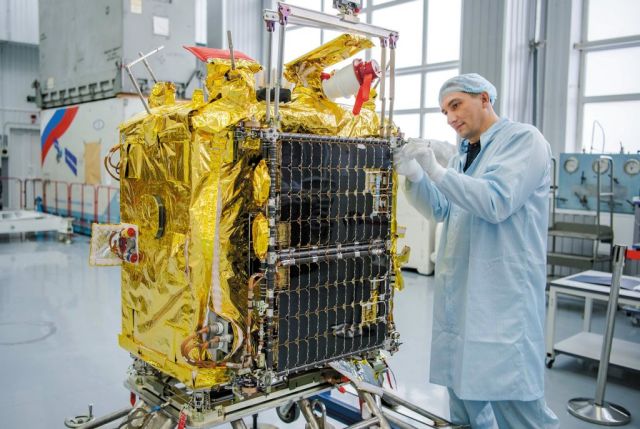According to the company's representative Dmitry Dymov, in particular, the organization is interested in such areas as the development of algorithms for controlling multi-satellite systems, the creation of microchips and chips, wireless and fiber-optic technologiesNOVOSIBIRSK, April 20.
/tass/. The most popular areas of targeted training of students in the aerospace industry are information and instrument technologies, as well as electronics and microelectronics, in particular, the development of algorithms for controlling multi-satellite systems. This opinion was shared on Thursday in the TASS press center by Dmitry Dymov, head of the basic center for system design of onboard electronic equipment of spacecraft of the M. F. Reshetnev Information Satellite Systems (ISS) company.
"According to the programs of targeted training and general training of students for the aerospace industry <...>. First of all, these are information and instrument technologies, this is exactly what makes the spacecraft promising and modern over a long period of time. Instrumentation and information technology are closely intertwined with another direction, which is the basis of devices, and specialists in this industry are also in demand - these are electronics and microelectronics. All the institutes with which we are working today in the field of targeted training and personnel training, we primarily pay attention to these two areas," Dymov said via video conference call.
He added that one of the promising areas in the aerospace industry are multi-satellite systems: the development of algorithms based on artificial intelligence for the interaction of satellites, determining their technical condition, docking in orbit, and so on.
Dymov said that M. F. Reshetnev ISS cooperates on targeted training programs with about 15 universities from the cities of Siberia, Moscow and St. Petersburg. According to him, targeted training of students is an effective form of education, taking into account the company's need to expand staff. In the next few years, the company plans to increase the number of employees by 1.5 thousand people.
Dymov called information and instrument technologies, as well as electronics and microelectronics the most promising areas for training students. These are two main areas in which further specialization is underway - the creation of energy-converting equipment for spacecraft, the creation of modern chips and chips, wireless and fiber-optic technologies, the creation of special software for spacecraft, and so on. "Naturally, the demand for specialists who can work in this industry, form requirements, develop these technologies, they are relevant today in the maximum value. These are the areas that are of interest to us," Dymov said.
In addition, Dymov said that the M. F. Reshetnev ISS is developing an analogue of the SpaseX Starlink network. "Such a system is currently being created. The questions are related to the specification of the characteristics. This is not a complete copy of what Starlink has. But such a system is currently being developed by our company," he said
Dymov added that ISS, in particular, cooperates with Novosibirsk State Technical University (NSTU NETI) in the direction related to power energy-converting equipment - the basis of the spacecraft power supply systems. "The more efficient these systems are on the spacecraft, the more resources are allocated for payloads," Dymov explained.
Earlier, the press service of NSTU NETI reported that on the basis of the university in cooperation with the ISS im. Reshetnev created the first power electronics design center in Russia, where prototypes of power hybrid modules for aerospace applications will be developed, designed and manufactured.


